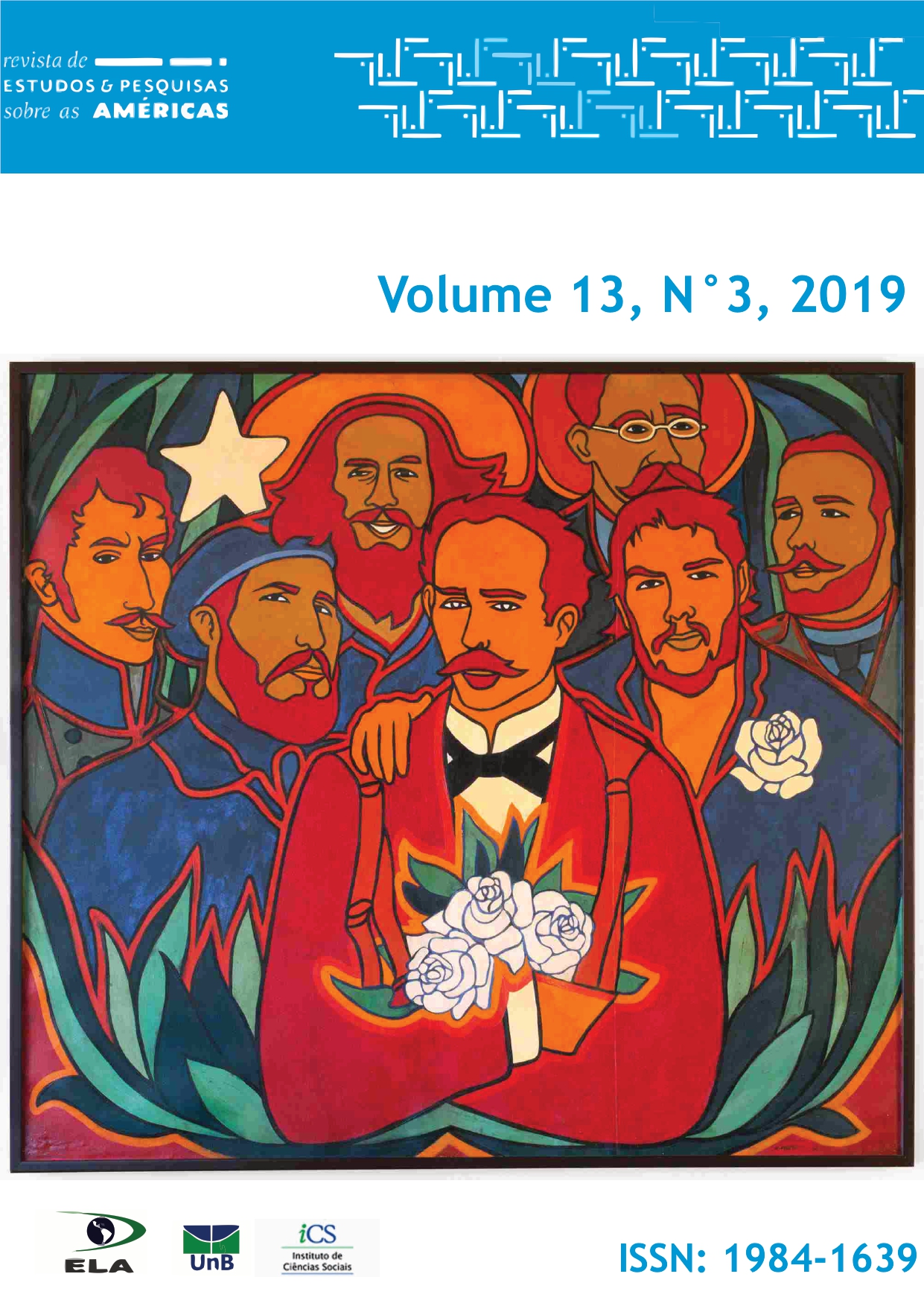Internet Iandscape in Cuba and the Arrival of Google in the Island
DOI:
https://doi.org/10.21057/10.21057/repamv13n3.2019.26972Keywords:
technology, internet, cuba, googleAbstract
The present article discusses the phenomena of disconnection in Cuba (RECIO, 2013), based on the analysis of the history of communications in the Island, from the 1959 Revolution (ALFONSO, 1993) until early 2019. We list Cuban-developed internet technologies (PRESS, 2011; URRA, 2011), the absortion of external technologies by the society, and the tactics designed by the population to try and overcome their lack of infrastructure, by tackling material limitations imposed by the economic embargo enforced by the U.S. since the early 1960s (BRITO, 2019). We then discuss the evolution of formal and informal telecommunications in Cuba during the period known as the "Actualización del Socialismo Cubano" (Actualization of Cuban Socialism, HABEL, 2009) and the process of re-establishing diplomatic relations with the United States, with a special focus on the role played by Google - considered herein to be not only a corporation but an American geopolitical actor, due to its close ties with the State Department throughout the Obama administration. We end up by establishing a time line of Google's actions towards Cuba and analyzing its actions in the first few years under Donald Trump and Miguel Díaz-Canel.
Downloads
References
Livros
ALLARD, Jean-Guy, GOLINGER, Eva. USA, NED y CIA: La agressión permanente. Ministério del Poder Popular para la Comunicación y la Información, Caracas, 2009.
ARON, Raymond. Essai sur les libertés. Hachettes, Paris, 1965.
ASSANGE, Julian. When Google Met Wikileaks. 1 edição ed. [S.l.]: OR Books, 2014.
DE CERTEAU, Michel. L'invention du quotidien; 1 - Arts de faire, Paris, Gallimard, 1990.
HOFFMANN, Bert. The politics of internet in third world development: challenges in contrasting regimes with case studies of Costa Rica and Cuba, University of California, San Diego, 2004.
SWEIG, Julia. Cuba: What Everyone Needs to Know, Oxford University Press, New York, 2008.
Artigos acadêmicos
ARSÈNE, Séverine. De l’autocensure aux mobilisations, About autocensorship and
mobilizations. Revue française de science politique, v. 61, n. 5, p. 893”“915, 14 out. 2011.
SILVA, Milena Recio. La hora de los desconectados. Crítica y Emancipación, n. 11, 2013. Disponível em:
< http://www.biblioteca.clacso.edu.ar/ojs/index.php/critica/article/download/30/31 >. Acesso em: 26 out. 2016.
URRA GONZÁLEZ, Pedro. Information systems in health: a conversation with Pedro Urra González. Salud Colectiva, v. 7, n. 1, p. 99”“111, 2011.
LÓPEZ GARCÃA, Hamlet. Cultura digital participativa y software libre en Cuba. Revista SWL-X, n. 3 ano 1, p. 16”“23, 2014. Disponível em: < https://gutl.jovenclub.cu/wp-content/ftp/ftp-gutl/docs/revistas/swl-x/swlx3.pdf > Acesso em: 4 mar. 2016.
LAÃN ESCANDELL, B. Bienes comunes, nuevos cercamientos y economía política popular. Política y Sociedad, v. 52, n. 1, 27 abr. 2015.
RICHERI, Guseppe. L’Internet en Chine, entre État et opinion publique, Les Enjeux de l'information et de la communication, vol. 19/1, no. 1, 2018, pp. 21-33.
HABEL, Janette. Raúl Castro a la hora de las decisiones, América Latina Hoy, 52, 2009, Ediciones Universidad de Salamanca, p. 99-100. http://revistas.usal.es/index.php/1130-2887/article/viewFile/5677/5712, Acesso em 05. Mai.2019.
Downloads
Published
How to Cite
Issue
Section
License
The published material is the property of the Journal, and may be reproduced in whole or in part with indication of the source.
Copyright: Authors will be responsible for obtaining the copyright of the material used. Authors who publish in this journal agree to the following terms:
a)Authors retain the copyright and grant the journal the right of first publication, with the work simultaneously licensed under
the Creative Commons Attribution License which allows the sharing of work with acknowledgment of authorship and initial publication in this journal.
b) Authors are authorized to take additional contracts separately, for non-exclusive distribution of the version of the work published in this journal (eg, publish in institutional repository or as a book chapter), with acknowledgment of authorship and initial publication in this journal.
c) Authors are allowed and encouraged to publish and distribute their work online (eg in institutional repositories or on their personal page) at any point before or during the editorial process, as this can generate productive changes as well as increase the impact and the citation of the published work (See The Effect of Free Access).
















